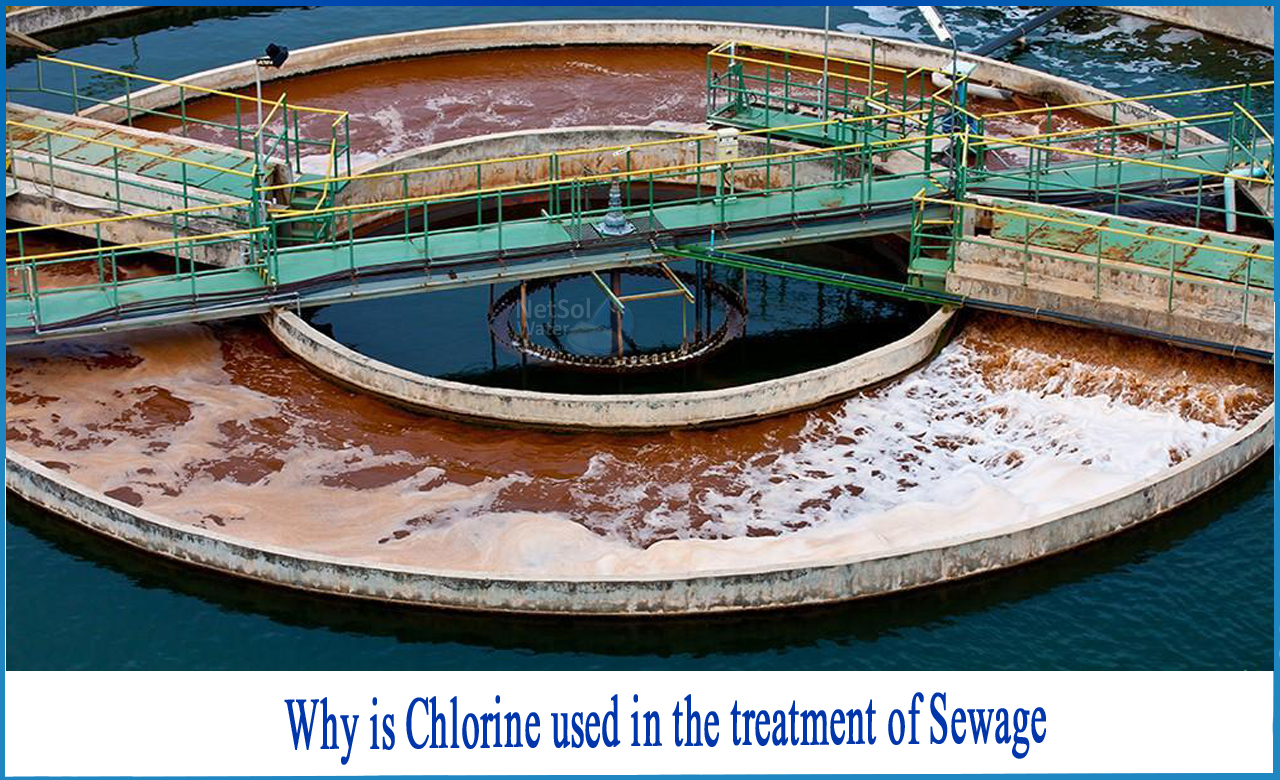Why is Chlorine used in the treatment of Sewage?
The water that is formed when you wash laundry or take a bath is referred to as wastewater. Dishwashing and flushing toilets are common sources of domestic wastewater. Commercial wastewater is produced by operations such as those found in car repair shops, beauty salons, furniture restoration companies, and other similar establishments. Because of the chemicals that these facilities utilize, commercial wastewater is usually more toxic than residential wastewater.
Chlorination in Wastewater Treatment Plants
Because wastewater has high amount of toxins, it must be treated before it can be released into the environment or utilized for other purposes. Once adequately cleaned, municipal wastewater should be safe to utilize for drinking water sources. Microorganisms that can cause serious waterborne infections are perhaps the most toxic pollutants present in untreated wastewater.
Chlorination is one of the methods used to treat wastewater, and it is known to be particularly good in removing viruses, protozoa, and bacteria.
Chlorination is frequently employed because it is more successful than other treatment methods in removing most harmful organisms. However, it can also remove most other pollutants present in water. Chlorination, as previously stated, is vital during wastewater treatment if pathogenic organisms that might cause waterborne diseases are to be eliminated.
If wastewater is released from a treatment facility before chlorination is applied, germs may be exposed to humans through swimming or drinking water. Mycobacteria, hookworm ova, Salmonella, E. coli, and Streptococcus are the pathogens most typically found in wastewater. Each of these microbes may make people sick if they are exposed to them.
Why is chlorine used as a disinfectant in sewage treatment?
Before you decide to disinfect wastewater using chlorine, you should learn more about the advantages of this treatment process. Along with eliminating any pathogens detected in wastewater, chlorine can also do the following:
1: Scrub the contaminated air;
2: Phenols and cyanides may be destroyed;
3: Bulking of activated sludge can be controlled;
4: Prior to disposal, chlorine stabilizes waste activated sludge;
5: Ammonia is removed from the water;
6: Filter flies and foaming are controlled;
7: Assists in the removal of scum and oil from the water.
8: Keep smells and septicity at bay;
9: Sanitizes the water.
Keep in mind that almost all toxins in wastewater must be eliminated before it can be considered disinfected!
Many businesses generate industrial wastewater, which need wastewater treatment. Metal finishing procedures, for example, are known to generate a slurry containing metals that have been dissolved in liquid. Nickel, copper, aluminium, and zinc are some of the metals that may be found in metal finishing waste.
Chemical production activities also generate a significant volume of wastewater. To ensure that chemical industrial facilities treat all of their wastewater effluents, strong environmental standards are in place. Grease, oil, suspended particles, phenols, and ammonia are some of the contaminants that are often released by petrochemical facilities and petroleum refineries.
Some of the other industries that are known to produce high amounts of wastewater include:
- Power plants
- Oil and gas fracking processes
- Steel and iron production
- Mining
- Food processing
Conclusion
It's vital to remember that the efficacy of chlorine disinfectionin STPsor WWTPs is influenced by the pH of the water. When the pH of the water is lower, the greatest and most efficient disinfection happens. Electricity is used to produce chlorine from brine solutions, which are made up of water and salt. If you want to ensure that you handle chlorine safely, you should be aware that if not handled properly, this chemical can be harmful to your health.
Technical assistance and guidance
Netsol Water collaborates with a wide range of international organizations to tackle complicated Wastewater problems by strategically integrating modern treatment technology with practical solutions.
Think of us when it comes to wastewater management for your organisation, adapted to your specific needs! We provide a cost-effective method to reuse and recycle water. Deal with us for wastewater treatment equipment’s and develop your business while complying with environmental standards.
We may be reached via phone at +919650608473 or by email at enquiry@netsolwater.com



